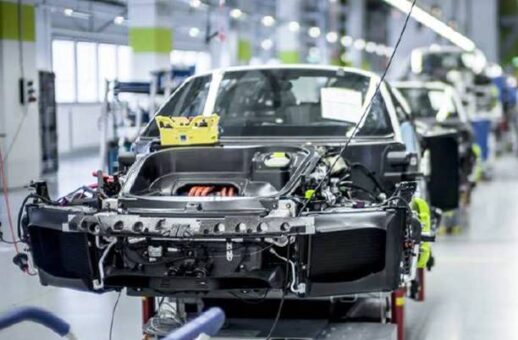Karachi, February 16, 2024 – Car assemblers in Pakistan are up in arms over the recent government decision to raise the sales tax on locally manufactured vehicles.
The move, approved by the Economic Coordination Committee (ECC), has sparked concerns among industry leaders about the potential negative impact on the already struggling auto sector.
In a letter addressed to Finance Minister Shamshad Akhtar, Director General of the Pakistan Automotive Manufacturers Association (PAMA), Abdul Waheed Khan, expressed deep reservations about the decision. According to Khan, the ECC has decided to increase the sales tax to 25% on cars with engine capacity above 1400cc or priced over Rs4 million.
Khan argued that such a tax hike would exacerbate the challenges faced by the local auto industry, leading to a further decline in production, sales, and overall revenues. PAMA data reveals a consistent downturn in local automobile production and sales over the past five years, and the industry fears that the tax increase will only intensify these woes.
One of the primary concerns highlighted by DG PAMA is the potential shift in consumer preferences towards imported used cars, which currently enjoy lower tax rates. This, in turn, could adversely affect the competitiveness of locally made vehicles, impacting Pakistan’s economy, consumer sentiment, and investor confidence.
In the letter to Minister Akhtar, Khan implored the government not to burden the local industry with an additional 25% sales tax. He pointed out that similar proposals had been rejected in earlier discussions with industry representatives, emphasizing the adverse consequences such a move would have on the struggling sector.
PAMA has gone a step further by formally requesting the immediate withdrawal of the proposed tax hike, citing the potential for a significant blow to local manufacturing amid an economic slowdown. The association contends that, contrary to government estimates suggesting an additional PKR 4 billion in revenues, the higher tax rate is more likely to diminish government revenues due to a decline in sales.
The car assemblers are calling for a comprehensive review of the decision, urging the government to consider the broader implications on the industry’s health, employment, and contribution to the national economy. With the auto sector already grappling with challenges such as supply chain disruptions and increasing production costs, the proposed tax hike adds another layer of complexity, potentially pushing the industry to the brink.
As the government faces mounting pressure from industry leaders, it remains to be seen whether Minister Akhtar and the ECC will reconsider the decision in the interest of fostering a more conducive environment for local automobile manufacturers and safeguarding the sector’s vital role in Pakistan’s economic landscape.
